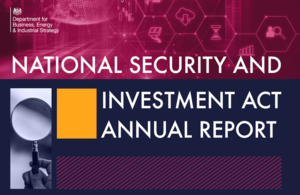Anglers welcomed back to river fishing as the Close Season ends
From today, Thursday 16 June, anglers are encouraged to start fishing in our rivers again as the statutory close season for coarse fishing in England’s fisheries comes to an end. The 16th is an eagerly awaited date in many angler’s fishing calendars.
Coarse fishing is prohibited in some of England’s waterways from March 15th to June 15th (inclusive) each year to protect vulnerable fish stocks while they are spawning.
The close season provides an opportunity for the Environment Agency and partners to carry out projects up and down the country to further enhance habitats which are vital for improving fish spawning. An important task is monitoring spawning populations of barbel and chub, boosting our understanding of populations and their habitat use.
Heidi Stone, Environment Agency Fisheries Manager, said:
The annual close season is vitally important to protect our fish stocks, enhance our fisheries, and improve the fishing experience for anglers around the country.
I’m grateful to all of our anglers who comply with the rules and regulations and I am delighted it is now time for anglers to pick back up their rods and return to the river.
The Environment Agency and partners also carry out important work in the winter months to ensure the close season is as beneficial as possible to fish populations, wildlife and the broader environment. This includes:
- Big catchment scale enhancements conducted to improve our fisheries, including re-naturalising river channels, speeding up flows, and protecting banks from erosion. This will increase diversity and spawning success.
- The construction of fish passes to help all fish species move freely and increase their chances of spawning success. Six new passes were built, for example, at the River Ouse in Yorkshire.
Environment Agency officers, in partnership with the Angling Trusts Volunteer Bailiff Service (VBS), have conducted patrols throughout the close season to help protect spawning fish. This year marks the 10th anniversary of ‘Operation Clampdown’, and officers carried out 542 patrols from 15th March to the end of May, reporting 49 anglers for offences and 162 other alleged breaches of fisheries legislation. Anglers have the potential to be fined up to £50,000 for fishing in the close season, highlighting the importance of this period to protect fish populations.
From today, anglers can return to rivers and benefit from an improved fishing experience. Those returning to fishing, or taking up the sport for the first time, should make sure they have a fishing licence, with 100% of fishing licence income invested by the Environment Agency into the enhancement and protection of England’s fisheries. We have made this even easier this year by making the online purchase journey easier with the added benefit of the option to have a digital licence, saving postage costs and allowing more money to be spent on fisheries.
Further information:
- The close season prohibits fishing in rivers, streams, drains, specified canals, and some still-water sites of special scientific interest (SSSI).

